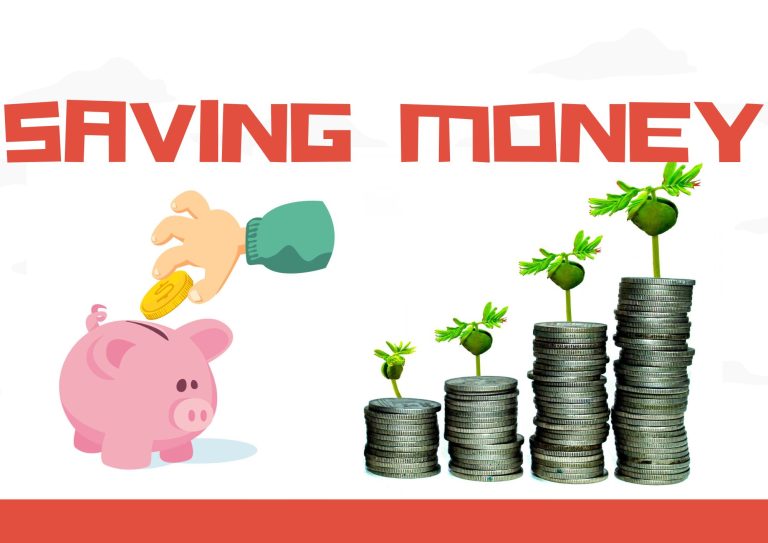Saving is the process of putting away a part of the current income for the future use. This portion of the current income being set aside will not be spent immediately. It will accumulate in this way over a given period of time. This money that is otherwise idle and not being put at risk with investments or spent on consumption is called savings.
A portion of your income will not be spent when you are careful in the use of your money or resources. This money that has not been used is called savings. Say, for an instance, you are in the need of buying a T-shirt. One shop was selling it for $10 (Kshs. 1,500), while another shop was selling it for $8 (Kshs. 1,200). You will save $2 (Kshs. 300) if you buy the less expensive option.
Why do people save?
Different people begin or continue to save for different reasons. Some of them include the following:
- It helps in emergencies.
The funds required to fund emergencies are usually not part of your regular budget. As a result, you are in constant need for finding quick emergency cash whenever unforeseen expenses have to be covered, for instance car repair or funeral bills. Your accumulated savings will help you take care of these emergencies.
- Cushions against sudden job losses
Saving will allow you pay for your daily expenses if you lose your current job and this will give you time to find a new job.
- It funds those expensive goods and big life events.
Your savings will fund, partially or fully, many big life events, like buying a house or starting a family.
- Limits debt
With savings in the bank, you’ll be able to stay away from taking out emergency loans when urgent situations occur. Also, they can be used to finance other expenses instead of using a credit card or personal loan. Therefore, you’ll save the amount that would have been spent on interest.
5. Helps prepare for retirement
It’s never too late (or too early) to start saving money. Have the habit of saving a small portion of your income. You will accumulate a substantial amount of retirement funds after several years. These savings will sustain you when you decided to retire. They’ll make your retirement much more comfortable.
What keeps people from saving?
Most people have bad money habits that hold them back from saving their money. They must understand these habits and liberate themselves from them. They ought to train on how to handle their finances more wisely too. These habits include:
1. Being uncertain about what you earn and what you spend.
Most people have disorganized finances. They have no clue of what they spend monthly. To sort this out, start by listing all of your assets and liabilities. Also list all the sources of your income, like salary, rental income, et cetera, and expenses like car fuel.
2. No defined budget
Create a budget. A budget is a financial plan that accounts for every shilling coming in and going out. It allows you to set maximum levels on the expenses you incur in different areas like bills and essential items and entertainment.
3. No real savings objective.
First, pay yourself by depositing a specified amount like 20% of all your earnings and put that in your savings and investments accounts. Use another portion to pay for other expenses and live on the rest.
4. Not Preparing for the Unexpected
Set up an emergency fund. This is a buffer of cash that insulates you against the unexpected. This fund should be separate from your other savings goals.
5. Expensive spending
A lot of people have expensive hobbies. They also have friends who spend their money on expensive things like going out to expensive restaurants, staying in expensive hotels, shopping, and going on trips with them.
Talk with them nicely and tell them that you can’t be with them because you are working hard to achieve some financial goals. You need to save money, and those expenses are out of your budget. You will gain respect from the people around you once you put your priorities into proper order. This awakening probably will trigger them to rethink and readjust to their financial goals.
6. Staying in Debt
Don’t get into debt if you don’t have to. pay for things in cash. Don’t do things if you can’t afford them. Get rid of your debt. Get a job that will allow you to pay that off quickly. Pay down the smallest balances first and snowball your payments over time, or tackle the debts with the highest interest rates first since those are the ones that are costing you the most money. You’ll have more money to put into savings when you don’t have debt.
7. Taxes
Taxes are going to be the single biggest expense in your lifetime. Why don’t you take time to understand tax rules that are in your favor? There are really many loopholes in the tax system that are accessible to the common taxpayer.
For instance, contributing to a retirement benefit scheme is another means of cutting down taxable income. You can also have an investment account that shelters your dividends and profits from taxes. Put
8. Making Excuses Not to Save Money
You need to defeat the bad money attitudes like I don’t make enough money to save, I’m no good with numbers, or no one taught me about money. Otherwise, you’ll find it difficult to become a saver.
9. Your comfort zone
You can find it difficult to adjust your lifestyle and introduce new habits, such as creating a budget, sticking to it, and setting savings goals, especially in the beginning. To overcome this, ease into your new savings plan. Start small by setting achievable financial goals. Over time, you’ll become accustomed to this different approach of managing your money, then you will be able to gradually increase your overall savings targets.
How much money should I start saving?
The bare minimum you should put away for savings should be 20% of your income. Meanwhile, another 50% (maximum) should go toward necessities, while 30% goes toward discretionary items.
Where do you put your savings?
Methods of saving include putting money in, for example, a deposit account, a pension account, an investment fund, or keeping it as cash. In terms of personal finance, saving generally specifies low-risk preservation of money, as in a deposit account, versus investment, wherein risk is a lot higher.
What are the best ways on how we can save money?
- Meals: You can start with small things: cooking at home or bringing your lunch at work instead of eating out. You will be able to spend less on food.
Reduce transportation expenses and enhance health well being. Walking or using a bicycle to work. Share rides through carpooling. Use public transportation such as buses or trains. These are cheaper alternatives as compared to driving alone. - Make sure your car is always at best operating conditions. Keep it maintained regularly. Inspect its air filters and tire pressure frequently and replace the oil when necessary. Implement fuel-efficient driving practices such as gradual acceleration and braking to reduce fuel consumption.
- Energy: Save power by unplugging devices or disconnecting electronics when you don’t use them. Switch to new appliances that use less energy whenever you need to replace your old ones.
- Entertainment: Opt for inexpensive leisure time activities like hiking, having a picnic, and being in nature. Visiting public parks is a non-expensive way of engaging in exercising, relaxation, and socialization. Taking part in community events and having at-home gatherings is an inexpensive strategy of enhancing your family ties. This is where you can be creative, collect unforgettable memories and develop your relationships without paying a lot of money for dining at an expensive restaurant or going on costly events.

Challenges of Saving and How to Avoid Typical Traps
Saving money is easy. Nonetheless, there are lots of hurdles to overcome. For instance, you can overspend on impulse, develop a tendency of living a more extravagant style of life, or you may experience an emergency.
- You must be self-disciplined to overcome the obstacles.
- You’ll have to force yourself to refrain from buying things that are unnecessary and keep reminding yourself of your long-term goals.
- Persist in your objective and do not lose sight of the reason as to why you started saving.
- Establish an emergency fund which can take care of unexpected expenses.
- Make a list of priorities that you can use to separate the things that you really need and those that you only want.
- Abstain from excessive borrowing and choose only affordable interest-bearing loans.
Conclusion
Saving money is one of the key money-handling habit which provides many advantages such as planning ahead for emergencies, reducing job loss risks, financing the purchase of expensive items, reducing debt, and planning for retirement. Although the advantages of saving are many, yet there are people who fail to save due to bad money habits and lack of financial education. With the help of tracking income and expenses, creating a budget, setting measurable savings goals, establishing an emergency fund, curbing unnecessary spending, avoiding debts, optimizing tax benefits and tackling any excuses for not saving, these barriers can be overcome.


